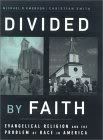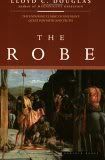 This week I'll be looking at chapter 2: Fear and the Moral Life in Scott Bader-Saye's book Following Jesus in a Culture of Fear. In it he poses the question: "What kind of people do we become if we are fed a steady diet of dread?" (25)
This week I'll be looking at chapter 2: Fear and the Moral Life in Scott Bader-Saye's book Following Jesus in a Culture of Fear. In it he poses the question: "What kind of people do we become if we are fed a steady diet of dread?" (25)
To answer this question, he asserts that we must first ask whether we can even speak of fear as a moral issue at all. After all, we're not accustomed to ascribing anything more to our emotions than neutrality. Bader-Saye calls our attention to theologian Simon Harak on the issue to show that our emotions can indeed have a moral dimension: "It is somehow wrong not to feel revulsion at rape, or to stay forever angry with imperfect parents. It is somehow right to rejoice at a friend's success, or to be moved by the plight of an abused child. So it seems upon reflection that our passions can be morally praise-or blameworthy." (25)
As applied to fear, while he says that fear itself is innate, we are socially conditioned as to what/how/when we fear. And if our fear becomes disordered and/or excessive, as it often is when we bathe in its waters daily, it can result in what he calls "shadow virtues". These 'virtues' are arising as we are losing the common ground and language with which to talk about morality, lacking a shared platform to exercise communal judgement. But we can appeal to our shared fear, and create a new ethic of safety that we all agree on. After all, who doesn't want to be safe?
Thus instead of talking about, for example, sex in the context of belonging to marriage as a gift from God (you've all heard this song, you can fill in the rest), we discourage premarital sex because of the health/pregnancy risks. Thus a moral decision now has little to do with holiness or goodness, and everything to do with safety. "We are more likely to tell our children 'be careful' than 'be good.'" (31)
But going back to the 'shadow virtues' that develop in a culture of fear. Bader-Saye identifies three: Suspicion, Preemption and Accumulation.
Suspicion assumes that we are (nearly) always at some kind of risk, and leads us to treat others as potential threats rather than our neighbor (in the Jesus-ian sense. Is that a word? Can it be?) It's easy to see this on the individual level, as most of us feel a little jumpy sometimes (also see the upturn in knife violence among teens in London this year. Scary.), but it also takes place at a policy level. One example he gives is how each foreign visitor to the US is now required to have a photo taken and be fingerprinted. A practice we often associate with what? Suspects in a police station. I'm not (and he's not) saying it's ineffective, but the roots of policy like this are problematic. (See the contrast with Leviticus 19:33-34)
Secondly, the 'virtue' of preemption: fight or flight. Get out of the way or strike before the other guy gets a chance. Again, you don't have to read long into W's National Security Strategy (check out the second bullet point) to see this virtue at the national level, nor far into the headlines about the war in Iraq to see some of the cost. He contrasts preemptive flight and fight, observing that flight is "characterized by our own lost opportunities and possibilities", while fight "jeopardizes the opportunities and possibilities for others." (33)
Finally, accumulation of wealth. We save for a rainy day, save because social security is going away by the time we need it, save because we might get sick, save so we can ______. While I would definitely advocate for wise financial planning and good stewardship, it might be worth taking a moment and examining the motives. What are we trusting?
Okay, that's it. Next week: Why Fearlessness is a Bad Idea.









0 comments:
Post a Comment